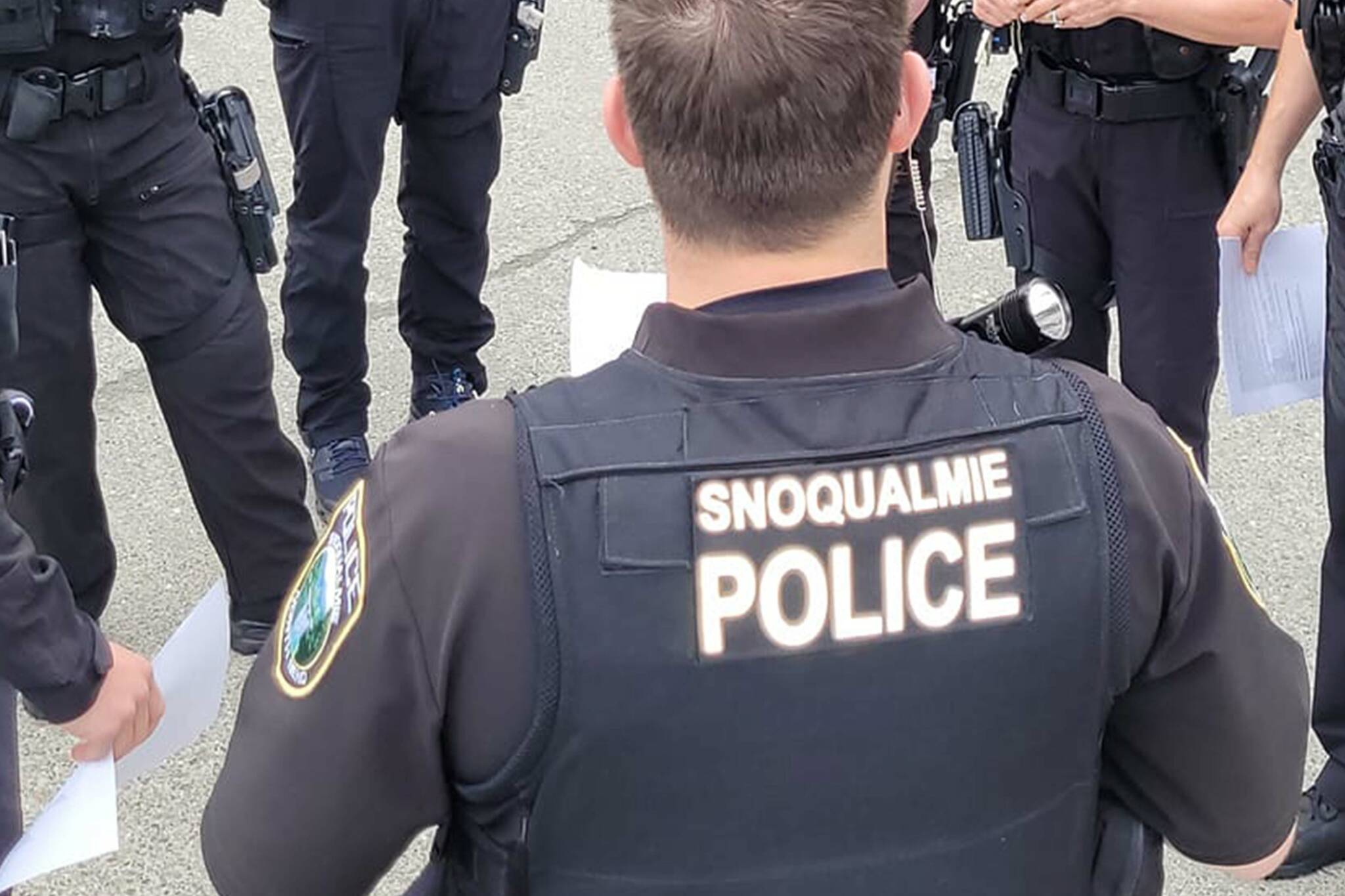Homicides and other violent crimes rose across Washington in 2022, but police in Snoqualmie and North Bend reported few instances of such crimes last year.
Violent crimes — defined as murder and manslaughter, rape, aggravated assault and robbery — remained rare for Snoqualmie Police, according to the 2022 Crime in Washington Report released by the Washington Association of Sheriffs and Police Chiefs this month.
For the second year in a row, police reported no instances of murder, manslaughter, rape in Snoqualmie. Instances of aggravated assault also dropped from five in 2021 to zero in 2022. The city had one robbery this year.
In North Bend, after no reports of murder, manslaughter, rape or aggravated assault in 2021. The city saw one reported rape and four reports of aggravated assault in 2022. North Bend saw two robberies in both years.
Car theft
While violent crime remained low, the Upper Valley did not totally buck state crime trends. Cases of vehicle theft continue a pandemic-era rise in the Valley, mirroring a statewide trend.
In 2022, police reported 32 vehicle thefts in Snoqualmie, up 18% from a year prior. In North Bend, 38 instances were reported, up 72% from 2021.
For comparison, car theft across the state was up 34%.
Dating back to 2018, Snoqualmie and North Bend routinely reported between 6 to 11 car thefts a year. But theft has spiked significantly since 2021.
After just six thefts in 2020, Snoqualmie saw 27 the next year. In North Bend, thefts rose from 11 to 22 over the same time span.
“Car theft has gone up everywhere,” interim Snoqualmie Police Chief Brian Lynch told the Valley Record last week.
Some of the Valley’s car theft numbers may be influenced by its proximity to Eastern Washington, Lynch said. The area near the North Bend outlet mall in particular sees stolen cars come through because it’s the first stop after Snoqualmie Pass and right off I-90, he said.
It has been difficult for officers to hold suspects accountable for auto theft, Lynch said. Prior to trying suspects for felony-level car theft, the King County Prosecutor’s Office requires police to prove the driver had knowledge the vehicle they were driving was stolen, a standard Lynch said is difficult to prove.
Seeking to penalize suspects that the county declines to prosecute, both the Snoqualmie and North Bend city councils adopted a “vehicle trespass” ordinance last April.
The legislation makes entering someone’s vehicle a misdemeanor within city limits, allowing Snoqualmie Police to seek charges through the Issaquah Municipal Court.
Misdemeanors carry more lenient penalties than felonies, limited to 90 days and jail and fines of up to $1,000, but Lynch hopes it can still dissuade criminals.
“If criminals know we will still arrest them, and in other places they won’t get charged, I’m hoping it will be a deterrent,” he said.
Having been around less than four months, Lynch said it is too early to tell if the vehicle trespass law is effective, but he did say officers have used the charge frequently.
Officer shortages
The 2022 Crime Report also found Washington law enforcement agencies continue to remain understaffed.
The state has about 1.36 officers every 1,000 residents, ranking it 51st among all states and the District of Columbia.
Combining the population of both Snoqualmie and North Bend, Snoqualmie Police had about one commissioned officer per every 1,000 residents, according to the report.
Lynch said hiring is currently his number one priority, with a goal to be fully staffed by the end of the year. Officers are covering the shortage with daily overtime, he said.
The department currently has six vacancies for uniformed officers. They also have an unfilled detective/sergeant position due to the shortage of rank-and-file officers, Lynch said. The city’s longtime chief, Perry Phipps, also left the city in early July.
During the active summer months, where the department receives between 25 to 30 calls a day, Lynch said a shortage of officers means limited time for investigations and extra patrols that he said could help reduce crimes of opportunity.
“Right now we are reactive,” he said. “I want to get back to being proactive.”


